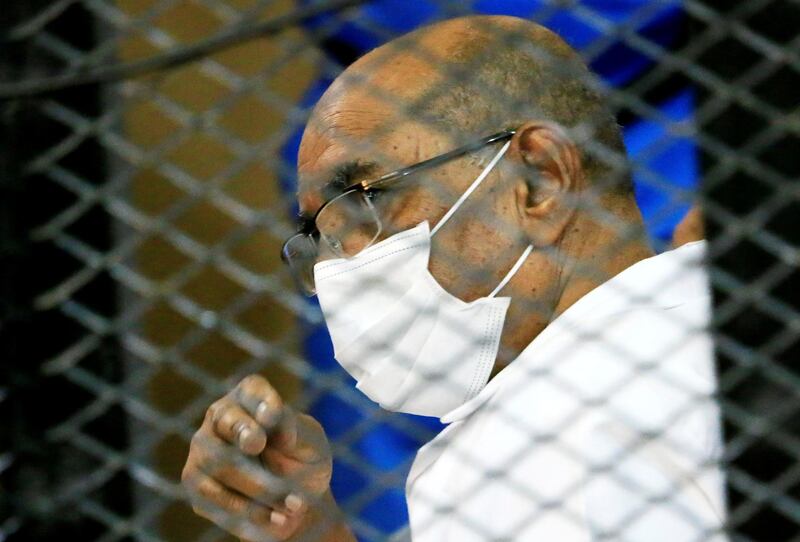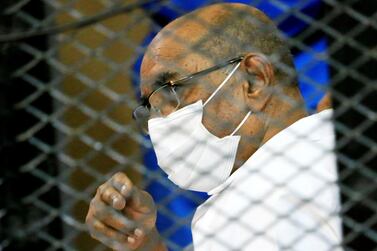Sudanese Prime Minister Abdalla Hamdok said on Sunday that his government was committed to achieving justice as an International Criminal Court delegation visited for the first time since the Omar Al Bashir was overthrown.
The ICC issued arrest warrants against Al Bashir in 2009 and 2010 on charges of war crimes, genocide and crimes against humanity during his campaign to crush a revolt in Darfur in which an estimated 300,000 people died.
The delegation, led by chief prosecutor Fatou Bensouda, arrived in Sudan late on Saturday to discuss the cases of Al Bashir and two other former officials wanted by ICC.
Ms Bensouda also met the deputy leader of Sudan's ruling council, Gen Mohamed Dagalo, who said the government was willing to co-operate with the court, state news agency Suna reported.
Though Sudanese transitional authorities said they would work with the ICC for those accused of war crimes to appear before the tribunal, it is unclear where and how hearings would take place.
Al Bashir and the two other former officials, Ahmed Haroun and Abdel Raheem Muhammad Hussein, were jailed after the uprising that led to Al Bashir being overthrown in April last year.
"Sudan's commitment to achieving justice is not only part of international obligations, but also comes in response to popular demands to establish justice," a Cabinet statement cited Mr Hamdok as saying as he met the ICC delegation.
Al Bashir has already been sentenced to two years in prison for corruption and is currently on trial over the military coup in which he took power in 1989.
His lawyer denounced the various charges against the former president as being politically motivated.
Mr Hamdok's civilian government is working under a military-civilian ruling council during a three-year transition that is meant to lead to elections.






